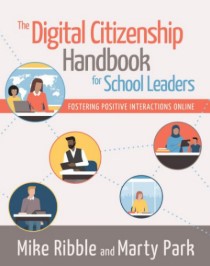In the digital age, the role of educators extends far beyond the classroom. Essentially aa Educators we are in modern terms, influencers of young minds and stewards of knowledge, and we have a unique responsibility to address social justice issues online. Remaining silent on these matters sends a clear message: these issues are not important. The issue is clear we need to lead in the area of social justice. Where this gets a little difficult for me is where is the line we can cross. Are there any consequences for pushing Social Justice causes. The issue for me in summary is “the more I know the less I know”. Here is what I mean:
- What information can I trust and not trust.
- Have I done proper vetting to understand the social justice causes.
- Have I identified the social causes.
- Is there any repercussions from your employment, association (STF) or even the Ministry of Education.
- Addressing social causes what impact will it do on my day to day practice. (Pick your battles).
I know that I am talking on both sides of my mouth. I would say a bit of hypocrite actually. However, over the last three decades in education I have seen happen officially and unofficially from people in power that reduced a teachers ability to address social justice issues in the classroom. In essence you need to understand the different types of power in an organization for it can have direct impact on what your capacity of a teacher is.
The Intersection of Edtech and Privilege
Now, as you are aware I am in Educational technology (edtech) and it is a powerful tool, but it is inherently tied to privilege. This is obvious for I have seen students from indigenous communities that did not have the ed technology that they rightly deserved. The level of connectivity to the internet alone is a major concern in Canada. If you don’t give people the ed tech tools to support their learning this sets them up for a much harder path to be successful in todays society. Just think what would happen if you could not be connected to the internet? How would you do your taxes or communicate with the government during this time of year. Even if you got to an account to do your taxes. You still are communicating through technology.
This is one example of how access to technology and the ability to engage with it are not universally available. Those who have the privilege of access must recognize their responsibility to use their platforms for more than just personal benefit or self-promotion. They must advocate for equity and justice, ensuring that their online presence contributes to meaningful discussions and actions. In 2020 when the pandemic hit the world. Students were sent home. That was an example when we saw that all students do not have the same access to technology in their homes. We had to prepare and send Chromebooks and pay for internet so students could connect with their teachers over the internet.

Created by Microsoft Copilot
Moving Beyond Personal Responsibility in Digital Citizenship
The concept of digital citizenship has traditionally focused on personal responsibility, emphasizing the importance of staying safe online. However, with privilege of ed technology also means we need to take responsibility to use technology for the greater good. This gives us an opportunity to broaden the traditional perspective to include issues of equity and justice. Digital citizenship should mirror face-to-face citizenship, emphasizing active participation and community contribution. As I tell the students probably on a daily basis. There is no difference between the offline and online world. Everyone, must recognize and address social justice issues. Using online means is simply another avenue to advocate for positive change in our communities.
Critiquing the Cybersafety Model
The traditional “cybersafety” model relies on fear tactics, warning users—especially young people—about the dangers lurking online. While it’s crucial to be aware of these risks, this approach often falls short. It focuses on what not to do, rather than encouraging positive, meaningful engagement in digital spaces. I would like to think that by focusing on what we can do in a positive manner we essentially create an incompatible environment which limits the tendency to use online tools in a negative manner.
“You can’t sing and swallow at the same time”
If you as a citizen are using digital citizenship skills in a positive manner then the at risk behaviors should simply be reduced due the compatibility of the environment.
Mike Ribble’s Framework for Citizenship
Mike Ribble’s framework for citizenship provides a useful lens for rethinking digital citizenship. He defined 9 categorizes to help encourage citizens to learn how to be functioning digital citizens.

- Digital Access: Ensuring equitable access to technology and online resources for everyone.
- Digital Commerce: Understanding the electronic buying and selling of goods, including the tools and safeguards involved.
- Digital Communication and Collaboration: Facilitating the electronic exchange of information and collaboration among users.
- Digital Etiquette: Establishing standards of conduct for respectful and considerate use of digital devices.
- Digital Fluency: Developing the ability to understand and use technology effectively, including discerning credible information.
- Digital Health and Welfare: Promoting physical and psychological well-being in a digital environment.
- Digital Law: Recognizing the legal responsibilities and rules governing online actions and behaviors.
- Digital Rights and Responsibilities: Understanding the rights and responsibilities of digital citizens, including privacy and freedom of expression.
- Digital Security and Privacy: Implementing measures to protect personal information and ensure online safety.
Applying this framework to digital citizenship, we see that this will help us encourage everyone to not only look at how we as individuals must take responsibility but also how do we teach current and future generations to address social justices issues in the present and future days ahead.
The Role of Educators
Educators play a crucial role in this shift. By modeling active and justice-oriented digital citizenship, they can inspire their students to do the same. This involves moving away from “acceptable use” policies that focus on what not to do and adopting “responsible use” policies that emphasize positive actions. Now that said I have to admit I still have concerns about “Big Brother” getting involved and receiving an unjustified negative response due to a misinterpretation. Like I told you in the beginning I am a bit of a hypocrite. I am understand the importance of social justice issues at the same time I have seen many things that have made me more cautious on how to address today’s issues.
The Impact of Social Media on Digital Communication Dynamics
Social media has significantly altered digital communication dynamics, making it easier for individuals to connect and share information. However, it has also amplified issues of misinformation, echo chambers, and online harassment. Educators must navigate these challenges by promoting critical thinking and digital literacy among their students. By doing so, they can help students become more discerning consumers of information and more responsible digital citizens.
Conclusion
Rethinking digital citizenship to include broader issues of equity and justice is essential for creating a more inclusive and equitable online environment. By encouraging active participation and community contribution, we can move beyond personal responsibility and foster a digital world where everyone has the opportunity to thrive. Educators, with their unique position of influence, must lead the way in this transformation. Let’s embrace this challenge and work together to redefine what it means to be a digital citizen.
